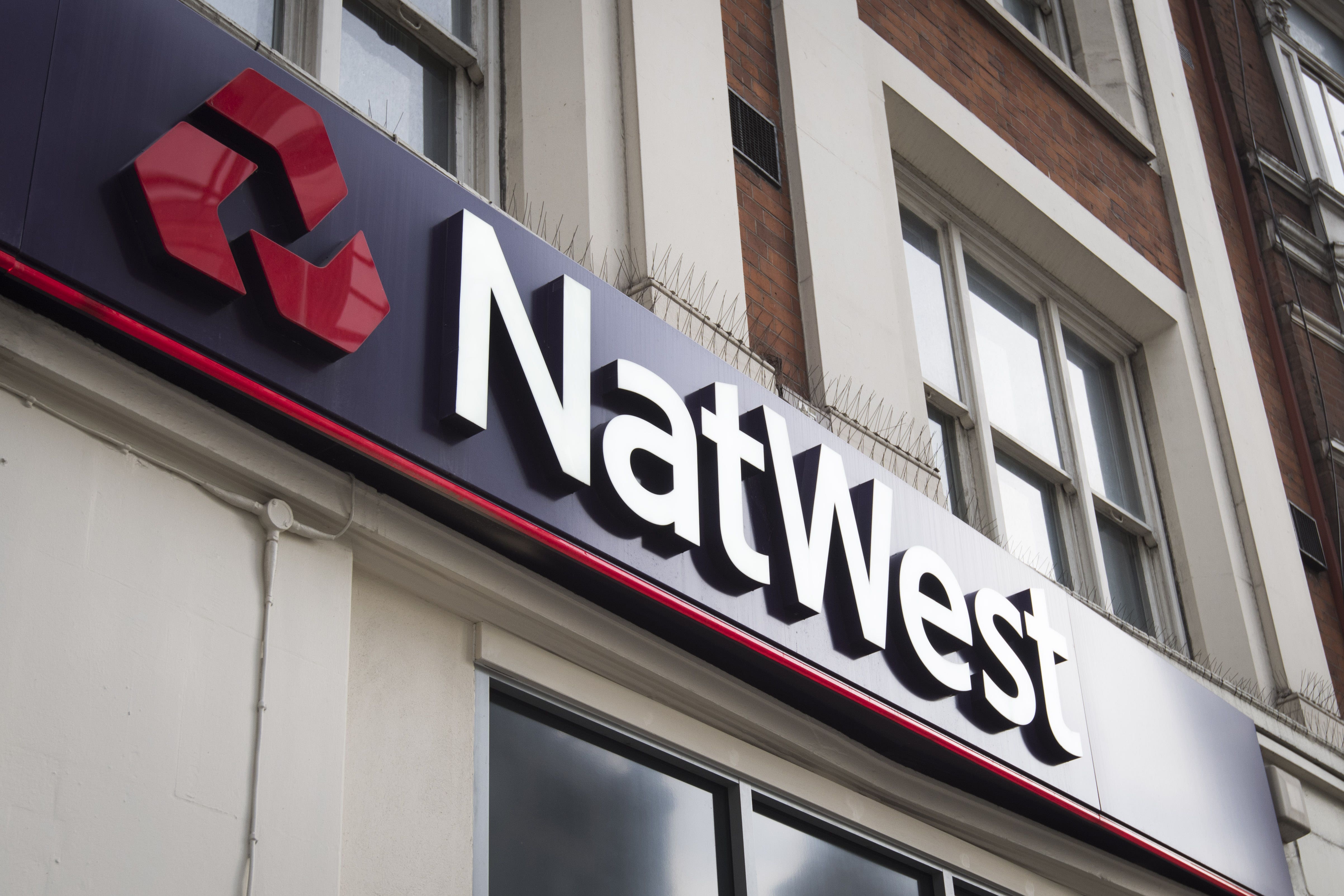NatWest sees customers switch to savings accounts as interest rates rise
The business’s pre-tax profit fell slightly short of expectations in the three months to the end of September and it downgraded its outlook.

Your support helps us to tell the story
From reproductive rights to climate change to Big Tech, The Independent is on the ground when the story is developing. Whether it's investigating the financials of Elon Musk's pro-Trump PAC or producing our latest documentary, 'The A Word', which shines a light on the American women fighting for reproductive rights, we know how important it is to parse out the facts from the messaging.
At such a critical moment in US history, we need reporters on the ground. Your donation allows us to keep sending journalists to speak to both sides of the story.
The Independent is trusted by Americans across the entire political spectrum. And unlike many other quality news outlets, we choose not to lock Americans out of our reporting and analysis with paywalls. We believe quality journalism should be available to everyone, paid for by those who can afford it.
Your support makes all the difference.Banking group NatWest has said customers dealing with the higher cost of living and soaring interest rates are moving their money to higher-interest savings accounts.
Shares in the bank plunged after it said its performance is likely to be affected by more customers looking for better returns on their savings.
The business said that 15% of its customer deposits are now in fixed-term accounts which pay better interest rates, up from 8% in the first quarter of the year.
Finance boss Katie Murray said the rate of movement from current accounts to savings accounts had slowed in September and October and that she expects around 17% of deposits to sit in such accounts by the end of the year.
It contributed to the bank’s net interest margins dropping in the three months to the end of September, hitting around 2.94%.
Credit losses and impairments remain low and we are ready and able to stand by our customers and businesses through the current economic uncertainty
Net interest margin (NIM) is an important measure for banks showing the difference between what it pays out in deposits and what it generates from loans.
Investors reacted to the bank downgrading its forecasted NIM for the year from 3.2% to 3.15%, with shares tumbling by around 13% on Friday morning.
Customers have been changing their behaviour in light of the rising cost of living and the higher UK interest rate, which currently stands at 5.25%.
This “clearly has implications” for the group’s performance, Ms Murray said.
Some of the bank’s loans to customers which were made during the Covid era also had higher margins than the lower margin loans replacing them today, it said.
It comes after rival British bank Barclays earlier this week sent its share price tumbling after also reducing its NIM outlook amid an “extremely competitive” savings market.
Yet NatWest managed to grow its profit to £1.33 billion in the quarter, up nearly 23% from £1.09 billion a year earlier.
It fell slightly short of the £1.36 billion that analysts had expected the bank to make.
NatWest Group, which owns Royal Bank of Scotland and Ulster Bank, said its income had increased, helped by rises in the amount of money it was lending and more income from its market division.
The bank issued £7.5 billion in new mortgages during the quarter, compared with £7.6 billion in the previous three months and down from £11 billion in the same period last year.
The business said operating expenses at its retail banking division had risen by £91 million, or 14.4%, as it increased pay and made losses from the termination of property leases.
It saved some money by reducing headcount by 3% at the division, NatWest said.
Chief executive Paul Thwaite said: “Today’s third-quarter results show that NatWest is a strong bank which is performing well, generating sustainable profits and returns.
“As a result, credit losses and impairments remain low and we are ready and able to stand by our customers and businesses through the current economic uncertainty.”
Given what has happened this week with Barclays and Lloyds and their NIM guidance, it wasn’t a surprise to see a further downgrade here
The quarterly update coincided with the banking group publishing the initial findings of an independent review into the closure of politician Nigel Farage’s account with Coutts, the private high-net-worth bank which it owns.
The review, conducted by Travers Smith, identified “serious failings” over its treatment of and communication with Mr Farage.
But the decision to close his account was lawful and predominately commercial, it ruled.
Michael Hewson, chief market analyst at CMC Markets UK, said: “Given what has happened this week with Barclays and Lloyds and their NIM guidance, it wasn’t a surprise to see a further downgrade here.
“However, that isn’t NatWest’s only problem given the fallout from chief executive Alison Rose’s departure when it was revealed she was the source of a leak over the details of the bank’s relationship with Nigel Farage.”
“From a reputational standpoint this is hugely damaging,” he added.